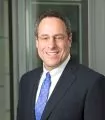To help our clients navigate the coronavirus (COVID-19) crisis, Arnold & Porter has established a Coronavirus Task Force covering a wide range of issues and challenges. Subscribe to our "Coronavirus (COVID-19)" mailing list to receive our latest client Advisories and register for upcoming webinars.
Introduction
Late last week, amidst the ongoing COVID-19 pandemic, the press reported that a number of US Senators had sold significant amounts of stock after certain committee briefings and other updates.1If those reports are accurate, those Senators avoided large losses from the market downturn caused by the coronavirus pandemic.
The news provoked calls from some quarters for the Senators' resignation or prosecution.2 Their responses have varied, with some pointing out that their investments were in a blind trust3 or other discretionary account over which they had no control or that made them unaware of the relevant trades.4 One Senator welcomed an investigation and claimed that he based his trades on public news reports, rather than congressional briefings.5 Such defenses of timely trades are common in most insider trading investigations, and will be especially strong here given the amount of global news about COVID-19.
It will be a while before the circumstances underlying these trades fully come to light. But one certainty is that they will do so in an environment in which the Securities and Exchange Commission (SEC) and the Department of Justice (DOJ) have recently increased their focus on insider trading by those with "political intelligence," or information meant to remain confidential within the government. The resulting uptick in cases has been spurred, in part, by the passage of the Stop Trading On Congressional Knowledge (STOCK) Act and recent jurisprudence, which have paved the way for more political intelligence cases.
A prosecution involving sitting members of Congress, however, will face a unique set of challenge. For example, prosecutors will need to overcome claims that the Senators' trades were based on public information or performed without their knowledge altogether. In addition, the Senators will almost certainly invoke their privilege under the Speech or Debate Clause of the Constitution, which may significantly impair prosecutors' ability to learn what the senators learned in their official capacities.
Political Intelligence and Insider Trading
Since the seminal Supreme Court case of Dirks v. United States6 in 1983, the touchstone for insider trading liability under Section 10(b) of the Securities Exchange Act of 1934 (the Exchange Act), and Rule 10b-5 is whether an insider breached their fiduciary duty to their company (or a similar duty based on a relationship of trust and confidence) by trading on or sharing material, nonpublic information. Such liability has applied, at least in concept, to government officials and lobbyists who use such information from their work, often referred to as "political intelligence," to gain an advantage in market transactions. Historically, however, insider trading cases against lawmakers have been rare, in large part because the duty of confidentiality for lawmakers—who can plausibly argue that their jobs include sharing information with their constituents and others—is far murkier than for an employee of a private company.
In 2012, Congress provided some clarity when it passed the STOCK Act, which prohibits lawmakers from sharing political intelligence with any person who intends to use that information in the stock market. Specifically, the 2012 law amended Section 21A of the Exchange Act to provide that covered government officials owe a "duty arising from a relationship of trust and confidence to the Congress, the United States government, and the citizens of the United States with respect to material, nonpublic information derived from such person's position . . . ." To that end, the STOCK Act makes it illegal to conduct a securities transaction on the basis of information: (1) derived by a person from direct communications with an executive branch employee, a Member of Congress, or an employee of Congress; and (2) provided in exchange for financial compensation to someone who intends, and who is known to intend, to use the information to inform investment decisions.7
Armed with the STOCK Act, prosecutors now have an easier road to bring "traditional" insider trading charges against a lawmaker or lobbyist. To do so, however, prosecutors must still satisfy the personal benefit test first established in Dirks, which requires a breach of a duty and that "the insider personally will benefit, directly or indirectly, from his disclosure." Prosecutors, defense lawyers and courts alike have struggled in recent years to discern what type of benefit, and who must have knowledge of that benefit, satisfies that test.8
Therefore, in addition to traditional insider trading charges, prosecutors have begun to use a number of other tools with which to prosecute political intelligence cases. For instance, in recent years, the DOJ has charged a number of such cases relying on 18 U.S.C. Sections 641 and 371, statutes that respectively prohibit theft of government property and fraud against the United States. For example, in United States v. Valvani,9 the DOJ charged the defendant, a portfolio manager, and others for trading based on inside information he received from the FDA's Office of Generic Drugs. For section 641, which criminalizes theft of government property, courts have found that confidential information may be considered government property so long as someone "converts" that information for their own use. For section 371, which criminalizes conspirators who "defraud the United States, or any agency thereof in any manner or for any purpose," the prosecutors must prove only that someone cheated the United States government or any of its agencies out of money or property or otherwise obstructed or interfered with the government's lawful functions by deceit, trickery or dishonest means.
Similarly, the SEC has brought civil enforcement cases against political intelligence companies and hedge funds for violations of the Investment Advisors Act based on the misuse of material, nonpublic information. For example, in November 2015, the SEC investigated and ultimately entered into a settlement agreement with the Marwood Group, a political intelligence company. In that case, a Marwood analyst and former employee at the Center for Medicaid & Medicare Services (CMS) obtained confidential information from a former colleague at CMS regarding a particular drug's on-label use, and thereafter included that information in a research report that was sent to hundreds of clients. The settlement involved only violations of the Investment Advisors Act of 1940 and compliance failures, but not for insider trading. Just like criminal charges under sections 371 and 641, which present certain challenges for the government, the Investment Advisors Act allows the government to avoid having to satisfy the controversial "personal benefit" test.
The most significant development in political intelligence cases, however, has been the government's very recent successful use of 18 U.S.C. Section 1348. Titled "Securities Fraud," section 1348 was included in the Sarbanes-Oxley Act of 2002, but had seldom been used until the DOJ charged the defendants in United States v. Blaszczak, et al.10 David Blaszczak, a Political Intelligence Consultant and a former Health Insurance Specialist at CMS, obtained material, nonpublic information from a current CMS employee about upcoming reimbursement announcements. He then provided that information to hedge fund clients and lobbyists, including Deerfield Management. Deerfield traded on Blaszczak's tip, leading to more than $3.9 million in ill-gotten gains. Blaszczak himself was paid $193,000 in fees.
Blaszczak and three other individuals were charged with traditional insider trading pursuant to Rule 10b-5 as well as securities fraud pursuant to section 1348. The jury ultimately convicted on the section 1348 charges, but acquitted on the more nuanced traditional insider trading charges under Rule 10b-5. On appeal, the defendants argued that the trial judge provided faulty instructions to the jury insofar as the court provided a set of elements the prosecutors must satisfy for section 1348 that were different, and far less onerous, than those for the insider trading charge under Rule 10b-5. For the latter charge, the jury received elaborate instructions, which included whether Blaszczak, the tipper, breached any fiduciary duty or received any benefit from the information. The instructions for Section 1348, on the other hand, were straightforward, tracking the language of the statute and focused solely on the concept of fraud. Most importantly, section 1348 instructions made no mention of any fiduciary duty or personal benefit. In affirming the convictions, the Second Circuit held that: (1) confidential government information may constitute "property" for the purposes of wire fraud and securities fraud, and (2) the personal benefit test does not apply to Title 18 fraud statutes.11
Insights from Humana & Height Securities
Despite the convictions in the Blaszczak case, insider trading prosecutions based on the use of political intelligence face substantial obstacles. The investigation of Height Securities provides insight into the type of challenges that DOJ and SEC face when they examine the conduct of legislators.
In 2013, CMS was planning to reverse its previously announced plan to cut payments to insurers who offered Medicare Advantage. If the cut had gone through, the cost to insurers could have been as high as $8 billion. It was, therefore, highly likely that CMS' change of heart would have a positive impact on insurers' stock prices.
On April 1, 2013, a lobbyist for Humana alerted his client, Height Securities, who blasted the information to its expansive list of hedge fund clients right before the market close. More than 40 hedge funds traded on this information, mainly by buying shares of insurers affected by the news. Those trades started a run that sent the price of Humana, for example, up by seven percent in the last 30 minutes of the trading day.
The SEC (and, based on news reports, the DOJ) opened an investigation focused on the office of Congressman Dave Camp (R-MI), who chaired the House Ways and Means Committee; apparently, the investigators suspected that this committee was the original source of the leak to the lobbyist. The investigation, however, quickly ran out of steam, as the committee refused to comply with SEC subpoenas for the communications of a top staffer believed to be involved in the leak, in part on the basis of legislative privilege and the Speech or Debate Clause. That privilege allows Members of Congress to speak and act in the legislative sphere under certain circumstances without potential legal repercussions. Importantly, "the sphere of legitimate legislative activity" is not limited to "speeches" or "debates" on the House or Senate floor. Rather, it extends to other legislative work, including "[c]ommittee reports, resolutions, and the act of voting," as well as "things generally done in a session of the House by one of its members in relation to the business before it."12 Unable to obtain documents or depose witnesses regarding the Committee member's communications, the government brought no lawsuits or prosecutions in connection with the Humana investigation.
Even if the SEC had been successful in obtaining those communications, there would have been additional barriers to prove insider trading. Due to the inherently speculative nature of congressional deals, the materiality of any such information would have been hotly debated. In Humana, for instance, the government's theory included that the CMS policy change was an exchange for staffing appointments at the agency; without the documents, that theory would have been difficult to prove.
A second obstacle is that information on Capitol Hill rarely is truly confidential. Although the STOCK Act creates a general duty of confidentiality, it does not speak to the many instances in which Senators, Representative, and their staff are doing their job by interacting and sharing confidential information with lobbyists and other people on the Hill. The giving and receiving of information—some of which is material and nonpublic—is essential to the legislative function. This is also true for lobbyists and public affairs officials whose day-to-day operations fall under the "political intelligence" umbrella. Indeed, the very purpose of such careers is to bridge the gap between elected officials and their constituents. This question is likely why insider trading charges incorporating the duty codified in the STOCK Act have been slow to materialize. And it is this dynamic that makes Section 1348 appealing to prosecutors. Instead of wading through the complicated legal analyses related to fiduciary duties and personal benefits, fact finders are able to focus simply on whether there was fraud in connection with a securities transaction.
Looking Ahead
It is far too early to draw conclusions regarding any potential liability for the Senators alleged to have traded based on material, nonpublic information about COVID-19. Further developments and additional context may show that the transactions at issue were benign, and initial reports were misguided. Moreover, any legislator or committee subpoenaed is likely to assert privilege over any information sought by the investigators.
Additionally, prosecutors will be required to prove that any information provided in the briefings at issue, whether classified or not, was not simultaneously publicly available via other sources. There is no doubt that much information regarding the increasing seriousness of the coronavirus pandemic was available to the general public at the time the Senators were briefed. Any successful prosecution would therefore hinge on the quality, certainty, and, ultimately, market impact of the information conveyed to the Senators that was not also available to the public
Another consideration for prosecutors is the extent to which politicians personally make investment decisions. Even traditional insider trading laws prohibit someone only from trading on the basis of material non-public information; they do not prohibit someone from knowing material non-public information while someone else, who lacks that knowledge, trades on the person's behalf. As a result, a blind trust or similar discretionary account that insulated the Senators from knowledge of the relevant trades before they took place would provide an absolute defense to liability.
At least one recent case shows that prosecutors will not hesitate to pursue politicians when the facts are clear and conduct is egregious. Earlier this year, former Congressman Christopher Collins (R-NY) was sentenced to 26 months in prison for insider trading that occurred while he was in office.13 Collins' guilty plea was not a political intelligence case because he used inside information that he obtained, not through his official duties as a Congressman, but as a board member and shareholder of Australian pharmaceutical company Innate Immunotherapeutics.
In June 2017, while at a White House picnic, Collins learned from the Innate CEO that the company's multiple sclerosis drug had failed its clinical trial. Collins immediately informed his son, who also owned Innate shares. Collins' son, his son's fiancé, and the fiancé's parents all then sold their shares before the test results were made public, avoiding significant losses. Because Collins' actions did not relate to his official duties, any potential defense relating to legislative privilege was not available. Nevertheless, Collins' case is an example of the appetite to prosecute sitting legislators, when appropriate, based on their access to information.
Ultimately, officials at DOJ or SEC may decide that pursuing these investigations are important in the wake of COVID-19's economic destruction, and because of the notoriety of the reports. But those efforts will not be without substantial obstacles.
Footnotes
- Robert Faturechi and Derek Willis, Senator Dumped Up to $1.7 Million of Stock After Reassuring Public About Coronavirus Preparedness, ProPublica (Mar. 19, 2020),; Lachlan Markay, William Bredderman, Sam Brodey, Sen. Kelly Loeffler Dumped Millions in Stock After Coronavirus Briefing, Daily Beast, (Mar. 20, 2020),; Sylvan Lane, Four senators sold stocks before coronavirus threat crashed market, The Hill, (Mar. 20, 2020).
- James Walker, Senators Richard Burr, Kelly Loeffler Face Calls to Resign Over Stock Sell-Offs Before Coronavirus Market Turmoil, Newsweek, (Mar. 20, 2020); Katie Shepherd, Tucker Carlson calls for Sen. Richard Burr to resign after stock sales, Washington Post, (Mar. 20, 2020),; @SenThomTillis, Twitter (Mar. 20, 2020 11:20 AM).
- Dustin Gardiner, Feinstein denies wrongdoing in stock sale before coronavirus outbreak, S.F. Chronicle, (Mar. 20, 2020).
- Julia Musto, Sen. Kelly Loeffler grilled by Ed Henry over reports she sold off stocks ahead of coronavirus pandemic, Fox News, (Mar. 20, 2020).
- J. Edward Moreno,Burr requests ethics investigation into stock sale, denies wrongdoing, The Hill, (Mar. 20, 2020).
- 463 U.S. 646 (1983).
- STOP TRADING ON CONGRESSIONAL KNOWLEDGE ACT OF 2012 (STOCK ACT), PL 112-105, April 4, 2012, 126 Stat 291.
- Dirks, 463 U.S. at 662. Arnold & Porter has previously discussed recent developments regarding the personal benefit test, which can be found here.
- No. 16-CR-412 (S.D.N.Y. June 15, 2016). DOJ and SEC also brought charges against Chris Plaford, another portfolio manager at the same company, and Gordon Johnston, a Political Intelligence Consultant and former Deputy Director of the Office of Generic Drugs.
- No. 18-2825 (2d Cir. Dec. 30, 2019).
- Id. at 4.
- Powell v. McCormack, 395 U.S. 486, 502 (1969).
- See United States v. Collins, et al., No. 18-CR-00567 (S.D.N.Y. 2018).
The content of this article is intended to provide a general guide to the subject matter. Specialist advice should be sought about your specific circumstances.





